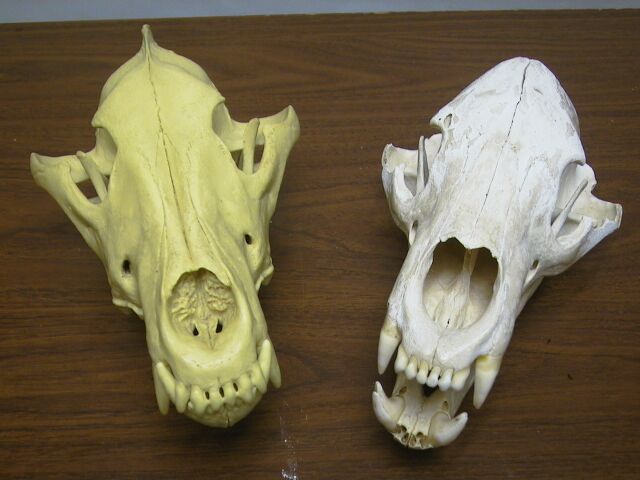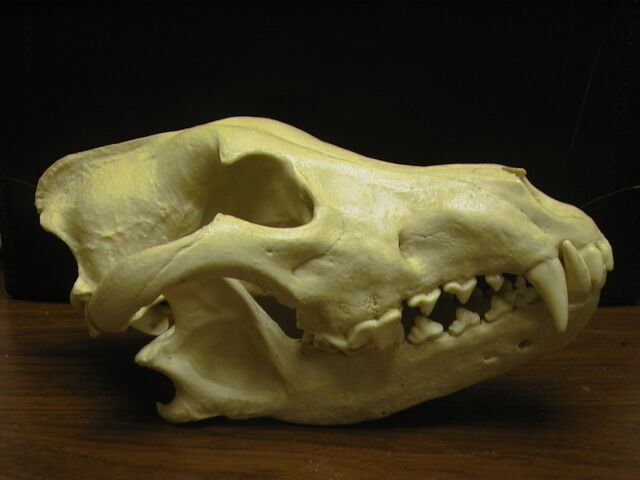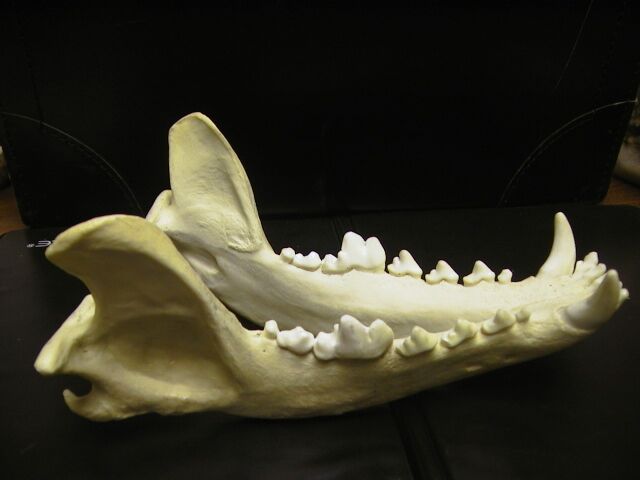 Photo by Dennis Deck
Photo by Dennis Deck
 Photo by Dennis Deck
Photo by Dennis Deck
Try to name the two species. [ View Answer ]
Note that the dentation clearly indicates a meat-only diet. The canines, about 2.5 inches long, are
well developed for grabbing prey. The upper and lower molars, called carnassial teeth, are
specially adapted for shearing tissue much like scissors. A massive bundle of muscle connects
the lower jaw giving this animal a tremendous biting force of about 1,500 pounds per square inch,
far greater than close relatives in the family. These muscle bundles also give this fellow a broad
face in a frontal view. The overall robust appearance of the skull should suggest Gray Wolf.
Now look back at the skull on the right of the first photo. If I had a side shot you would
see that the jaw consists mostly of grinding molars (much like our own) more indicative of an omnivore.
If you guessed Black Bear you get a gold star.
Answer
You may have had some difficulty with the preceeding picture. The angle was selected to
highlight the similarities of the two skulls. However, you probably identified them both as
carnivores from the fangs. Now look at the skull on the left from a different angle.  Photo by Dennis Deck
Photo by Dennis Deck This closeup of the lower jaw shows the carnassial teeth very clearly.
This closeup of the lower jaw shows the carnassial teeth very clearly.
These skulls were on display in the classroom at WolfHaven International, a wolf refuge in Tenino near
Olympia, Washington.